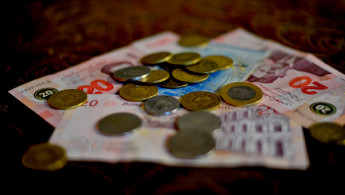Tunisia turns to its central bank to shore up its budget deficit
Cash-strapped Tunisia wants to borrow billions from its central bank to shore up budget deficits and bandage its ongoing economic crisis.
In a meeting behind closed doors, the North African country's parliament on Wednesday mulled a request from President Kais Saied's government to borrow funds after it previously overhauled laws designed to guarantee the bank's independence.
The government wants the central bank to directly buy up to 7 billion Tunisian dinars ($2.25 billion) in interest-free bonds to help plug a 10 billion dinar ($3.2 billion) budget deficit.
But in Tunisia — where inflation and shortages of basic goods have become routine — the request is raising concerns about undermining the bank's independence, causing inflation and further spooking foreign lenders and investors. It comes as Tunisia finds itself unable to borrow from traditional creditors, including the International Monetary Fund, whose proposed bailout package remains in limbo.
"Amending the status of the Central Bank of Tunisia (BCT) just to allow it to finance the government's budget and nothing else ... is a misguided approach that brings with it numerous risks — notably inflationary — for the country's economy and relationship with its partners," said economist Aram Belhadj, a professor at the School of Economy and Management of Tunis.
Borrowing from the central bank may fund the country's budget in the short-term, retaining subsidies for goods that everyday Tunisians rely on flour, electricity and fuel. But it could reap long-term consequences and further destabilize trust in the nation's currency and its value, Raouf Ben Hedi, an analyst at Tunisia's Business News, said.
The unprecedented request comes as other sources of financing run scarce. As Tunisia's presidential election approaches later this year, negotiations over the IMF's $1.9 billion bailout package remain at an impasse due to Saied's reluctance to curb subsidies or reduce public sector wages.
"Political pressures can lead to expansionary monetary policies during election periods, which is the case for Tunisia," Ben Hedi said, warning that such policies could lead to recessions later on.





 Follow the Middle East's top stories in English at The New Arab on Google News
Follow the Middle East's top stories in English at The New Arab on Google News


